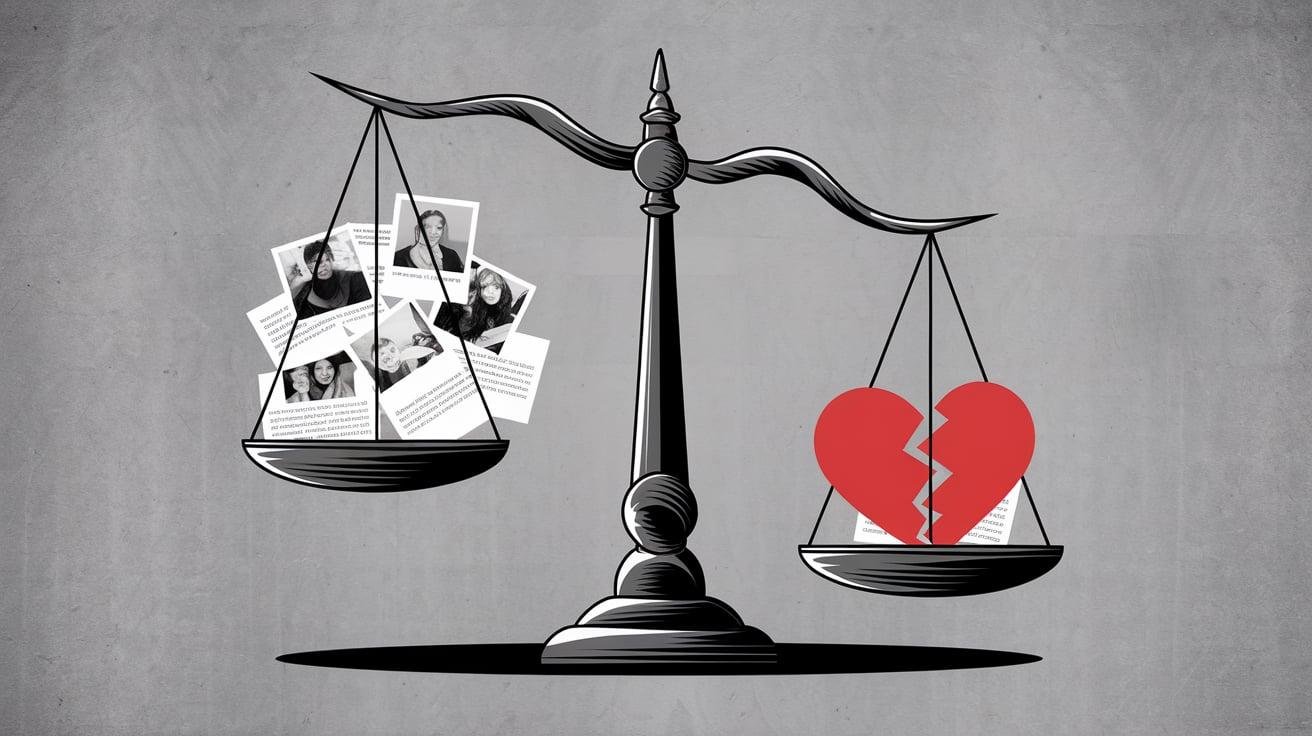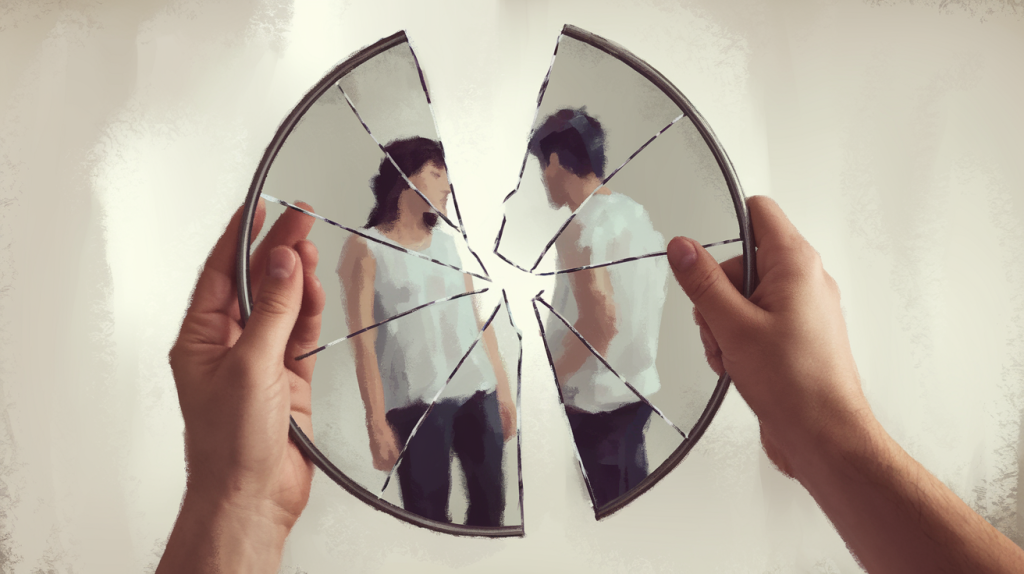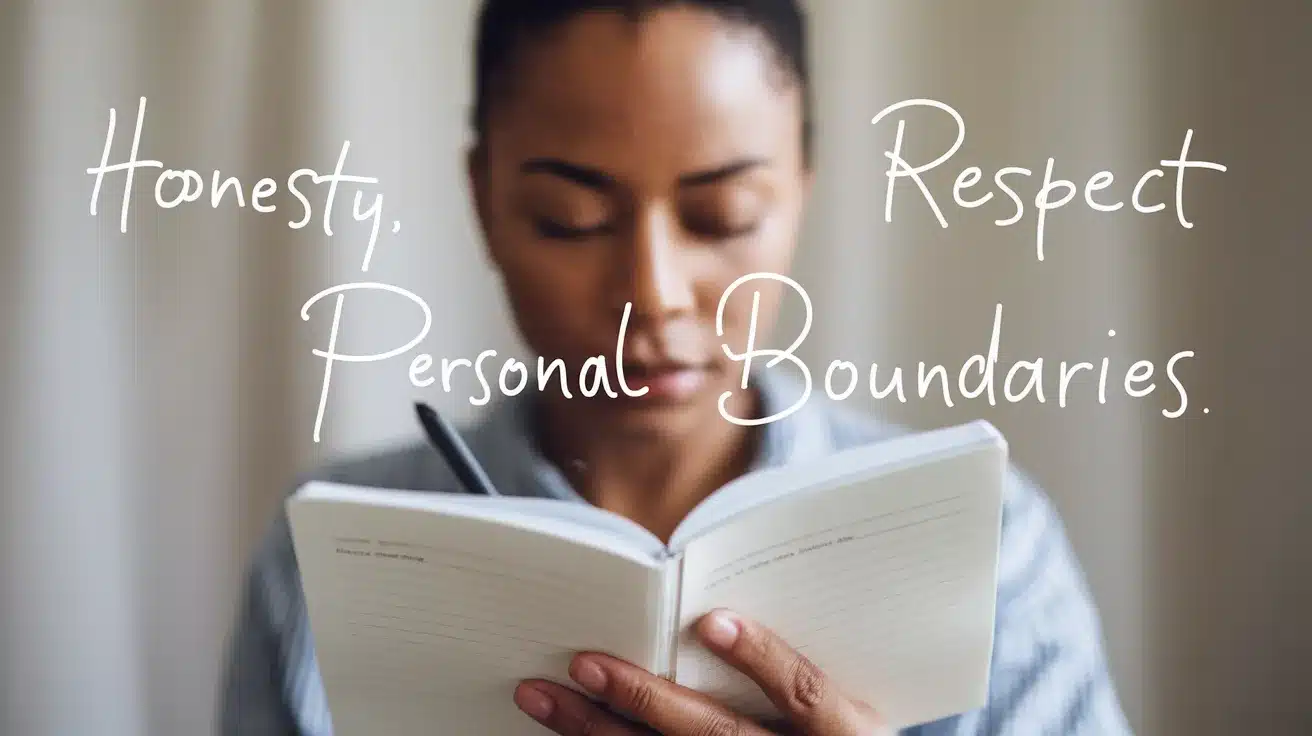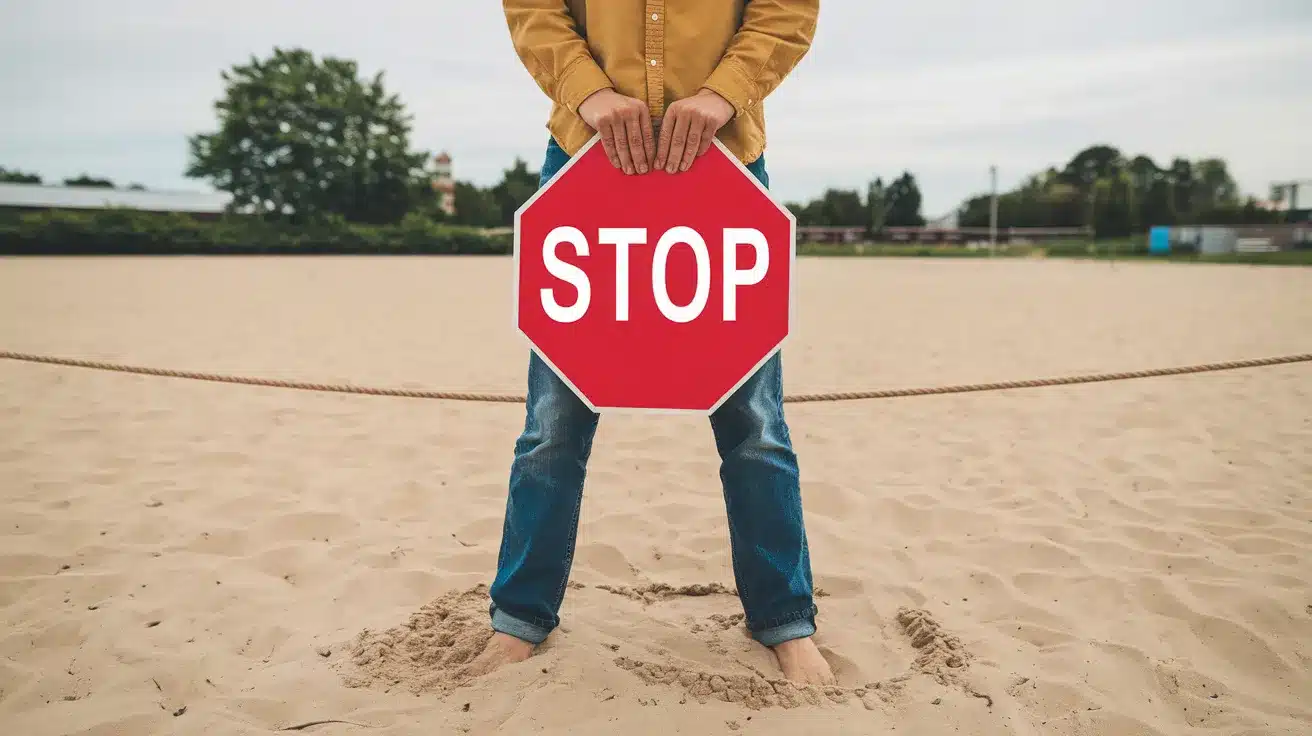Have you ever felt the sharp sting of a friend’s betrayal? The moment you learn someone you trusted has broken your faith cuts deep and lingers long.
Most people don’t talk about how common this pain is. Studies show that 68% of adults have faced major friendship betrayals at least once. You’re not alone in this struggle.
When friends betray us, we gain a chance to learn who we truly are. This painful experience often leads to better self-knowledge and stronger personal limits.
This post will show you five practical ways to turn friendship betrayal into a tool for growth. Read on to find out how your worst friendship experiences might become your most valuable teachers.
When Does Friendship Betrayal Happen?
Friendship betrayal happens when trust breaks between friends. It often comes without warning. The person you trusted now uses your secrets against you.
Betrayal takes many forms. Sometimes, it’s one big event. A friend shares your secret. They lie about you. They abandon you when you need them most.
Other times, betrayal builds slowly. Small broken promises add up. They stop making time for you. They don’t defend you when others talk badly.
Betrayal hurts deeply because friendship needs trust. We show our true selves to friends. We share our weaknesses and fears. When safe spaces become unsafe, the pain cuts deep.
Many feel shame after betrayal. “Did I choose poorly? Should I have seen this coming?” These questions are normal but usually unfair to yourself.
The Emotional Impact of Betrayal
- The Shock Wave: Betrayal by a friend hits hard. It creates a storm of feelings that can last for months or even years. The first emotion is often shock. Your brain struggles to match this new reality with what you believed. “This can’t be true,” you think. The disbelief acts as a shield against the full force of pain.
- The Anger Phase: Then comes anger. Hot, fierce, and protective. Your anger might target your friend, yourself, or both. “How could they?” mixes with “How could I not see this coming?”
- The Sadness Valley: Sadness follows like a heavy blanket. You grieve not just for the friendship but for your sense of safety in relationships. You might feel alone, even among other friends.
- The Shame Spiral: Many people feel shame after betrayal. They blame themselves, wondering if they deserved what happened. This self-blame is rarely fair or accurate.
- Trust Walls: Trust issues often emerge. You might start to question everyone around you. This protective response makes sense but can block new connections if it lasts too long.
- Physical Reactions: Physical symptoms are common too. Sleep problems, changes in appetite, headaches, and stomach pain can all stem from the stress of betrayal.
- The Identity Question: Self-doubt creeps in. “Am I a bad judge of character?” you wonder. Past choices get questioned. Future choices feel risky. The path through these emotions isn’t straight. You might cycle back through anger just when you thought you’d moved on. This is normal.
The Turning Point: Re-Evaluating the Friendship
1. Taking a Step Back

After the first wave of emotions settles, you need time to think clearly. Step away from the situation. Create space between you and what happened. This distance helps you see the full picture.
Take at least a few days without contact. Turn off notifications from their social media. Ask mutual friends not to update you about them. This mental break allows your thoughts to calm down. Without constant reminders, your mind can process what happened more objectively.
During this time, focus on self-care. Spend time with supportive people. Do activities that bring you joy. Get plenty of sleep. These basics help steady your emotions so you can make better choices.
2. Looking at Patterns
Review your friendship honestly. Was this betrayal a one-time mistake or part of a pattern? Look for warning signs you might have missed. Did your friend often break small promises? Did they speak badly about their other friends to you?
Pull out old text messages. Think about past conflicts. Notice how they handled stress or disagreements before. Did they take responsibility for mistakes? Did they listen to your concerns? The answers reveal important clues about their character.
Make notes about times you felt uncomfortable but brushed it aside. Those small moments of doubt often point to larger issues. Trust your gut feelings—they usually try to protect you.
3. Examining Your Needs
Ask yourself what you truly need in friendships. Make a list of your non-negotiable values. Does this friendship match those values? Did it ever? Sometimes we accept less than we deserve out of habit or fear of being alone.
Consider qualities like honesty, respect, reliability, and kindness. Rank these traits by importance to you. Then rate how well your friend displayed these qualities. The gaps between what you need and what they offered become clear.
Think about how you feel after spending time with them. Good friends leave you feeling better, not worse. If you often felt drained, criticized, or anxious around them, that tells you something important.
4. Considering Their Side
Try to understand their actions without excusing them. People sometimes betray others because of their own pain or problems. This understanding doesn’t make their actions right. It just adds context.
Was your friend going through a hard time? Did they face pressures you didn’t know about? Sometimes people lash out or make poor choices when stressed. This doesn’t justify betrayal but explains some behavior.
Consider their history. People who grew up with unhealthy relationship models might not know how to be good friends. Those who faced rejection or betrayal themselves sometimes hurt others first as a defense.
5. Measuring the Good Against the Bad

Think about the good parts of your friendship. Do they outweigh this betrayal? Some friendships deserve a second chance. Others have run their course. Only you can decide which is true for yours.
List the positive moments you shared. Count the times they supported you or brought value to your life. Weigh these against the harm caused. Consider whether the good times were recent or mostly in the past.
Ask if they show genuine remorse. True regret includes taking responsibility, expressing real sorrow, and making changes. Half-hearted apologies or blame-shifting suggest they might repeat the behavior.
6. Setting New Boundaries
If you choose to continue the friendship, clear boundaries become essential. Decide what behavior you will and won’t accept going forward. Be ready to enforce these limits.
Practice how you’ll communicate these boundaries. Use direct, simple statements like “I need honesty from my friends” or “I can’t continue our friendship if you share my personal information.”
Plan your response if they cross these lines again. Knowing in advance how you’ll react prevents you from making decisions based on temporary emotions. It gives you strength to stick to what’s best for you.
7. The Possibility of Letting Go

Sometimes the healthiest choice is ending the friendship. This doesn’t mean you failed. It means you value yourself enough to walk away from harmful relationships.
Ending a friendship might happen through a direct conversation, a letter, or simply distance over time. Choose the method that feels safest and most respectful to yourself.
Prepare for sadness even if you know it’s the right choice. Grief for lost friendships is real and valid. Allow yourself to feel this loss while remembering why you made this decision.
Healing and Letting Go Friends

Healing from friendship betrayal takes time and patience. There is no quick fix, but several methods can help you move forward.
1. Helpful Healing Methods
- Journaling works wonders: Writing about your feelings helps make sense of them. Try writing for 15 minutes daily about what happened and how you feel. Studies show this reduces stress and brings clarity.
- Talk with a therapist: Professional help offers safe space to process complex feelings. Therapists provide tools to handle betrayal trauma without judgment.
- Practice daily self-care: Small acts matter. Take walks outside. Read books you enjoy. Cook healthy meals. Sleep enough hours. These basic needs support emotional healing.
- Join support groups: Meeting others who understand betrayal can reduce feelings of isolation. Both online and local groups exist for this purpose.
2. The Power of Forgiveness
Forgiveness isn’t about excusing bad behavior. It’s about freeing yourself from anger that hurts you more than anyone else.
You don’t need to tell the person who hurt you that you forgive them. This is an internal process for your benefit. Research shows forgiveness lowers blood pressure and reduces anxiety.
Forgiveness happens in stages. First, you acknowledge the hurt. Then you decide to let go of revenge wishes. Finally, you release the grip the betrayal has on your daily thoughts.
3. Self-Compassion Matters
Talk to yourself as you would a good friend. Would you tell a friend they should have known better? Or would you offer kindness?
Stop harsh self-criticism. Phrases like “I should have seen it coming” keep you stuck. Replace them with “I trusted because that’s what good friends do.”
Remember that good people get betrayed. Your trust wasn’t foolish—it was brave. The fault lies with the person who broke trust, not with you for giving it.
Practice daily self-compassion exercises. Put your hand on your heart and say: “This hurts, and that’s normal. I’m still worthy of good friendships.”
The Benefits of Letting Go

Letting go of betrayal frees you. You gain mental space. Your stress levels drop. You sleep better at night.
1. Finding Freedom
Your energy returns when you stop carrying hurt. No more checking your phone with dread. No more fake smiles at group events. No more explaining someone’s bad behavior. Time spent worrying becomes yours again.
Those mental hours can go to hobbies, work, or rest. Studies show people gain 7-10 hours weekly after cutting ties with draining friends.
Physical health often improves too. Research links toxic relationships to high blood pressure, poor immune function, and stomach issues. These symptoms often fade after ending bad friendships.
2. Making Room for Better Relationships
Good connections need space to grow. While you hold onto harmful ones, this space stays filled. New friends match who you are today.
They share your current values, interests, and goals. They know the real you, not an outdated version. The bar rises for who gets close to you. You spot red flags early. You watch actions, not just words. This filtering leads to fewer but deeper friendships.
3. The Gift of Self-Discovery
You learn exactly what you need in friends: respect, honesty, mutual support, good listening. These clear wants guide future choices. Your own friendship skills improve.
You become more direct, more honest, more present. You value quality time over mere contact. Trust in yourself grows strongest. You start believing your gut feelings. The voice that says “this feels wrong” becomes a trusted guide in all relationships.
Conclusion
Friendship betrayal hurts deeply but also teaches us much about ourselves. Through this pain, we learn our limits, needs, and strength.
The key lessons from betrayal come not from the hurt itself but from how we handle it. By facing our feelings, caring for ourselves, and setting clear limits, we change for the better.
When we let go of harmful bonds, we make room for healthy ones. We find people who match our values and respect our trust. Most importantly, we learn to trust ourselves again. Our inner voice grows clearer with each test it faces.
The scar of betrayal marks not just what we lost but what we found: a stronger, wiser, more authentic version of ourselves.









